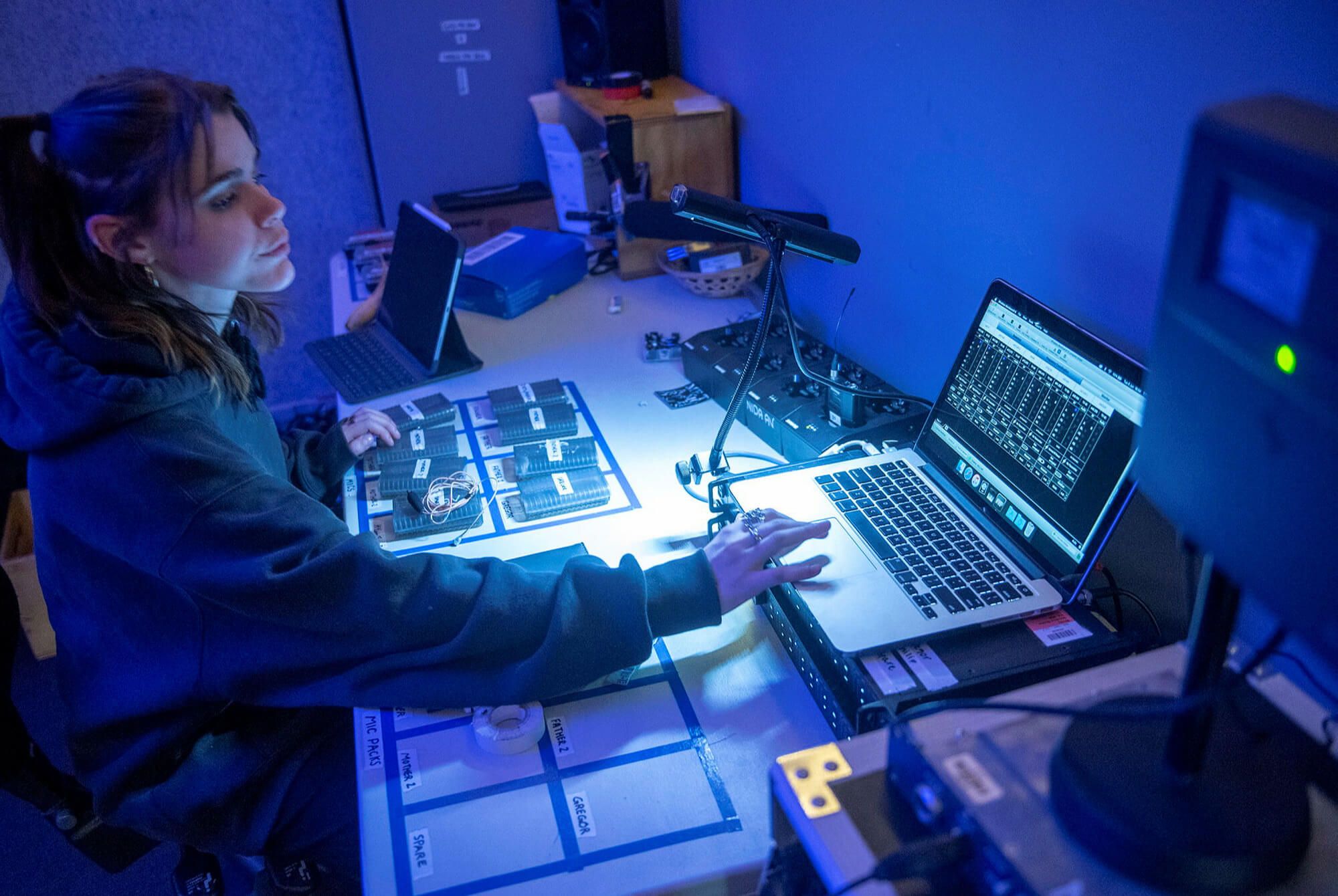NIDA can offer a variety of workshops tailored to the individual needs of the visiting school. NIDA’s VET tutors are highly qualified and experienced working industry professionals.
For students currently enrolled in the Certificate III in Live production and technical services studying the Entertainment course at their school. School group bookings only. Maximum class size 10 students for Staging/Entertainment workshops.
- Work, Health and Safety
- Audio
- Lighting
- Vision
- Staging
- Audio Visual
Enquiries and bookings please contact NIDA Vocational Studies on 02 9697 7514 or reach out via email: [email protected].
The National Institute of Dramatic Art RTO CODE: 90349
- 2-3hrs: $60 pp.
- 4-5hrs: $85 pp.
- 6-7hrs: $105 pp.
- White Card Full Day Course $95 pp.
Enquiries and bookings please contact NIDA Vocational Studies on 02 9697 7514 or reach out via email: [email protected].
The National Institute of Dramatic Art RTO CODE: 90349
See where NIDA can take your students
For 60 years, NIDA has selected only the most talented individuals from the thousands of aspiring actors, designers and technicians who audition for a place every year.

